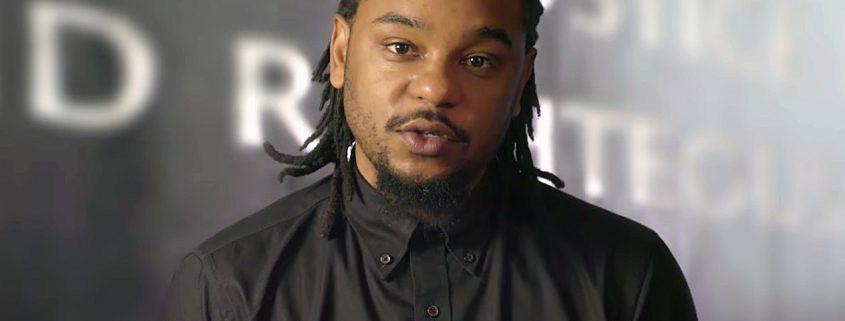Professor’s work informs proposed U.S. commission on racial healing
Marcus Hunter, UCLA professor of sociology and chair of the African American studies department. (Photo Credit: UCLA)
A recently proposed U.S. Commission on Truth, Racial Healing and Transformation, which U.S. Rep. Barbara Lee introduced into Congress shortly after protests erupted in the wake of George Floyd’s death, could be a powerful next step in the fight for racial justice in America.
The draft of the proposal, however, has been in the works for more than three years, with collaboration on the language from Marcus Hunter, UCLA professor of African American studies, whose forthcoming book will focus on slavery and reparations. He’s been part of a coalition that meets regularly to advance the resolution.
On July 18, they will launch the #BreatheWithMe campaign in support of the proposed resolution and to coincide with Nelson Mandela’s birthday. It will feature celebrities and supporters reading sections of the resolution and sharing on social media.
The #BreatheWithMe campaign includes a People’s Petition that will help citizens request that their Congressional representatives support the resolution, which currently has 130 co-sponsors, but needs 218 backers in the House of Representatives, ideally by the end of August when the current congressional session ends.
“People are wondering how they can help, what’s next in the movement,” said Hunter, who is the Scott Waugh Professor in the Division of Social Sciences. “This is a very simple but very tangible way for people to take action.”
The resolution gained early and critical support from the NAACP as well as fellow leaders in Congress including John Lewis, Los Angeles’ own Karen Bass, who chairs the Congressional Black Caucus, and Deb Harland, co-chair of the Congressional Native American Caucus.
“I have a lot of hope and aspirations right now,” Hunter said. “And I think Representative Lee felt this was a great time to propose this resolution as an extension of the support we are seeing across the country for the Black Lives Matter movement.”
Hunter got involved in the process when Lee saw him host a discussion on the topic on CSPAN’s “Book TV” back in April 2017 and got in touch to enlist his help drafting the resolution. Last year the United States marked the 400th anniversary of the first slave ships arriving in North America in 1619 and the text of the resolution addresses the “long overdue debt of remembrance to not only those who lived through the egregious injustices … but also to their descendants.”
Once put into practice, a commission like this will also pave the way for tangible support when it comes to reparations, not just for dependents of American slavery, but also Native American populations, Hunter said.
“This will create another way of studying the phenomenon of slavery and racial inequity,” Hunter said. “It should almost be the least we can do, an assessment of slavery and its aftermath. Can we at least document our past nationally so it’s not a matter of opinion? Can we put the evidence and memory of it down in one place? It will result in a database of quantitative information that can be used in specific reparations cases and to inform future policy.”
The resolution also cites that 40 other countries have “reckoned with historical injustice and its aftermath through forming Truth and Reconciliation Commissions.”
This article originally appeared in the UCLA Newsroom.


